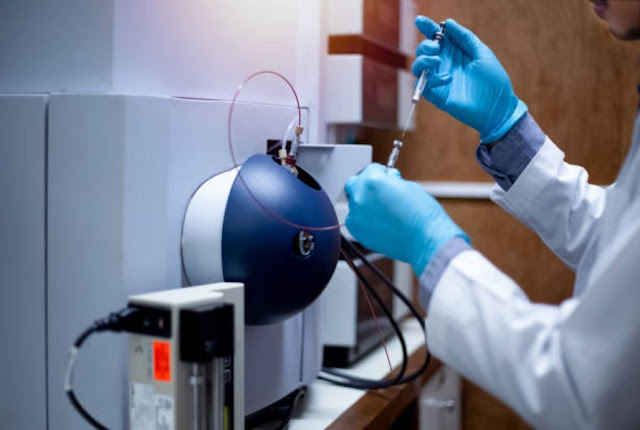Probiotic Foods: Harnessing the Power of Bacteria for Health

I. Understanding Probiotics: The Guardians of Gut Health
Probiotics are living microorganisms, primarily bacteria and
yeast, that confer health benefits when consumed in adequate amounts. They play
a crucial role in maintaining a balanced microbial ecosystem in the
gastrointestinal tract, promoting digestion, and bolstering the immune system.
The human gut is a complex ecosystem inhabited by trillions of these
microorganisms, collectively known as the gut microbiota.
II. The Benefits of Probiotic Foods
Digestive Harmony:
Probiotics contribute to a balanced gut microbiota,
preventing the overgrowth of harmful bacteria. This balance is essential for
optimal digestion and nutrient absorption.
Immune Support:
The gut is a significant player in immune function, and
probiotics enhance the body's defense mechanisms. They stimulate the production
of antibodies and promote the activity of immune cells.
Mental Well-being:
Emerging research suggests a strong connection between gut
health and mental well-being. Probiotics may influence brain function, potentially
contributing to the management of mood disorders.
Inflammatory Control:
Probiotics exhibit anti-inflammatory properties, helping to
mitigate chronic inflammation associated with various diseases, including
inflammatory bowel conditions.
III. Types of Probiotic Foods
Yogurt:
Yogurt is perhaps the most well-known probiotic-rich food.
It contains live cultures, such as Lactobacillus and Bifidobacterium, which aid
in digestion and promote gut health.
Kefir:
Kefir is a fermented milk drink with a tart taste. It is
loaded with probiotics and often well-tolerated by those who are lactose
intolerant.
Sauerkraut:
Fermented cabbage, sauerkraut, is rich in probiotics and
also a good source of vitamins. Its tangy flavor adds a unique twist to various
dishes.
Kimchi:
A staple in Korean cuisine, kimchi is a spicy fermented
vegetable dish, typically made with cabbage and radishes. It's not only
flavorful but also a potent source of probiotics.
Miso:
Miso, a traditional Japanese seasoning, is a paste made by
fermenting soybeans with salt and koji fungus. It's widely used in soups and
stews.
Tempeh:
A soy-based product, tempeh is fermented and has a nutty
flavor. It's a versatile ingredient in vegetarian and vegan diets.
Pickles:
Naturally fermented pickles, not those produced with
vinegar, can be a good source of probiotics. They are low in calories and make
for a crunchy snack.
IV. Incorporating Probiotic Foods into Your Diet
Start with Small Amounts:
For those new to probiotics, it's advisable to introduce
these foods gradually to allow the gut to adjust.
Diversify Your Choices:
Consume a variety of probiotic-rich foods to ensure a
diverse range of beneficial microorganisms.
Homemade Fermentation:
Consider making your own fermented foods at home. This not
only allows you to control the ingredients but also ensures a higher concentration
of live cultures.
Pair with Prebiotics:
Prebiotics are substances that promote the growth of
beneficial bacteria. Pairing probiotics with prebiotic-rich foods, such as
fiber-rich fruits and vegetables, enhances their effectiveness.
V. Addressing Common Misconceptions
All Bacteria Aren't Created Equal:
Understanding the difference between beneficial and harmful
bacteria is crucial. Probiotics are the good guys that support your health.
Supplements vs. Whole Foods:
While probiotic supplements can be beneficial, obtaining
these microorganisms through whole foods offers additional nutrients and a more
diverse microbial profile.
Effectiveness Depends on Strain:
Different strains of bacteria offer distinct health
benefits. It's essential to choose probiotic-rich foods that contain strains
associated with the desired outcomes.
VI. Challenges and Considerations
Heat and Processing:
Some probiotics are sensitive to heat and may be destroyed
during cooking or processing. Choosing raw or minimally processed forms of
probiotic foods can help retain their efficacy.
Individual Variability:
The response to probiotics varies from person to person.
Factors such as genetics, diet, and overall health can influence the effectiveness
of these microorganisms.
VII. Future Frontiers: The Role of Probiotics in Medicine
Research is ongoing to explore the potential therapeutic
applications of probiotics in various medical fields. From gastrointestinal
disorders to mental health conditions, the future may see the development of
targeted probiotic interventions tailored to individual health needs.
Conclusion
Probiotic foods offer a natural and delicious way to support gut health and overall well-being. By incorporating a variety of these foods into your diet, you can cultivate a thriving community of beneficial bacteria in your gut. As research continues to uncover the intricacies of the gut-brain connection and the broader impact of probiotics on health, these foods may play an increasingly important role in our quest for a healthier life.


